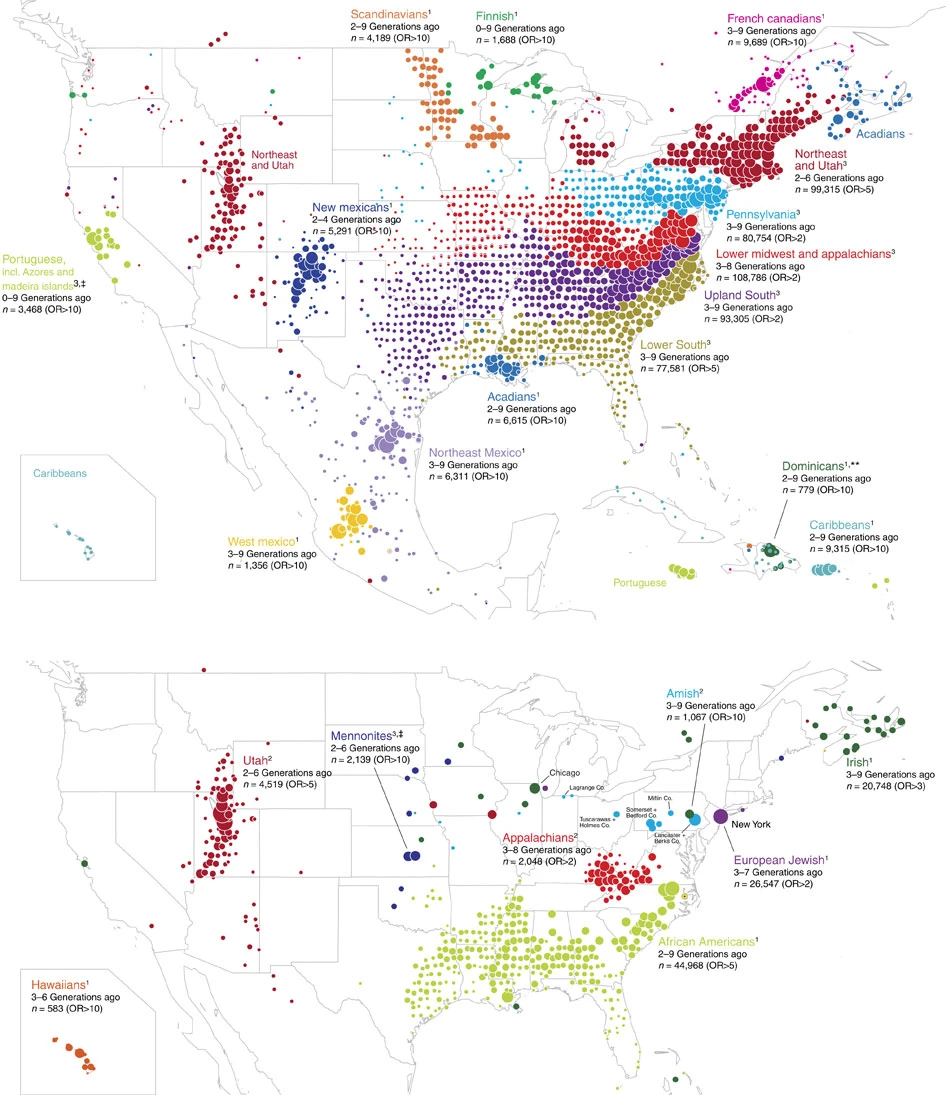Monday, June 29, 2020
American Genetic Clusters
You have likely seen the upper map in the last couple of years. It is based on all those Ancestry.com genetic samples that people send in. The full paper was published in Nature in 2017. They looked for clusters, and what they found corresponds greatly to what we know from American history. Especially if you have read and remember David Hackett Fischer's Albion's Seed. I haven't mentioned it in a while, but let me note again that it is the one essential book of American history. Enormous amounts of American settlement and regional culture will just click, and it will provide you with a framework for understanding it.
I draw your attention to the second map, which you may not have seen. It shows smaller sample clusters they identified, and is also fascinating. Mormons show up as part of the Northeast cluster because their founding population was largely from New York and New England, and their first areas of foreign missions were the British Isles and Scandinavia. Founding populations have an outsize genetic influence, which you can also see in how their effect dissipates East to West in the above maps.
There are other maps and much discussion at the link. You could lose a whole morning there. It is interesting that they were able to discern two Appalachian groups, which we usually just combine as Scots-Irish/English Borderers. There is also an interesting map of which states are genetically most eastern, western, northern, southern. It's not shocking that New Hampshire's deeper genetics (3-9 generations) is the most northern, but it is surprising that Louisiana is the most eastern - until you remember the Arcadians getting kicked out of Nova Scotia and becoming Cajuns. Fun stuff.

If I'm reading the second map correctly, it appears to pick out Nauvoo IL which for a time was a Mormon settlement before conflicts with non-Mormons pushed them farther west, and Council Bluffs IA which was the provisioning stop before the long trek west to Salt Lake UT.
ReplyDeleteA couple of other notes.
ReplyDeleteI would have put the little clot of Irish in Eastern Iowa closer to the Mississippi River but they are definitely there.
And in the dog that didn't bark department, there's a German religious separatist group that named their community in eastern Iowa Amana about where the Irish dot is. They're often confused with Amish but this shows that they definitely aren't, genetically as well as in belief.